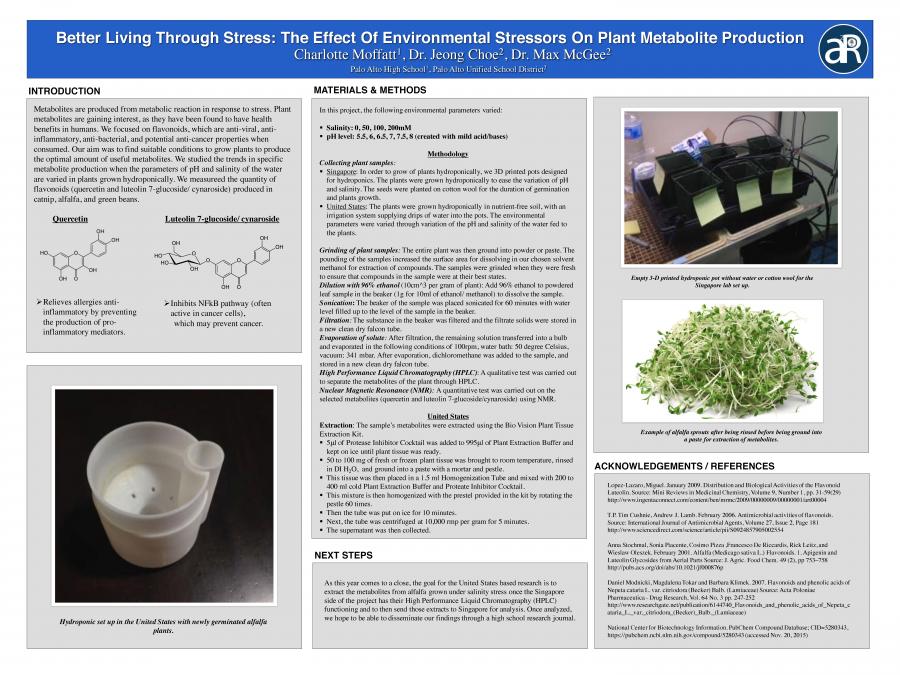The Effects of Environmental Stress on Metabolite Production in Catnip, Alfalfa, and Green Beans by Charlotte M.
Presentation
Summary
What is the Effects of Environmental Stress on Metabolite Production in Catnip, Alfalfa, and Green Beans? Secondary metabolites are chemicals often produced by plants in response to environmental stress. Flavonoids, one of the most well known classes metabolites, has been shown to have antiviral, anti- inflammatory, anti-bacterial, and possibly anti-cancer properties. It would be beneficial to increase the amount of flavonoids in the food we eat as to take advantage of their numerous health benefits. In conjunction with the National Junior College in Singapore, we will be exploring the effects of varying salinity and pH level on the concentration of quercetin and luteolin 7-glucoside/cynaroides (both flavonoids) in catnip, alfalfa, and green beans under the following parameters: salinity concentrations at 0, 50,100, 200 mM; pH level at 5.5, 6, 6.5, 7, 7.5, 8 (created with mild acid/bases). Plants are grown in a hydroponic system with nutrient free soil as a base in Palo Alto while plants are grown in 3D printed pots filled with water and cotton fibers in Singapore to compare. Plant metabolites will be extracted and high performance liquid chromatography or nuclear magnetic resonance will be used to analyze the metabolites samples...

